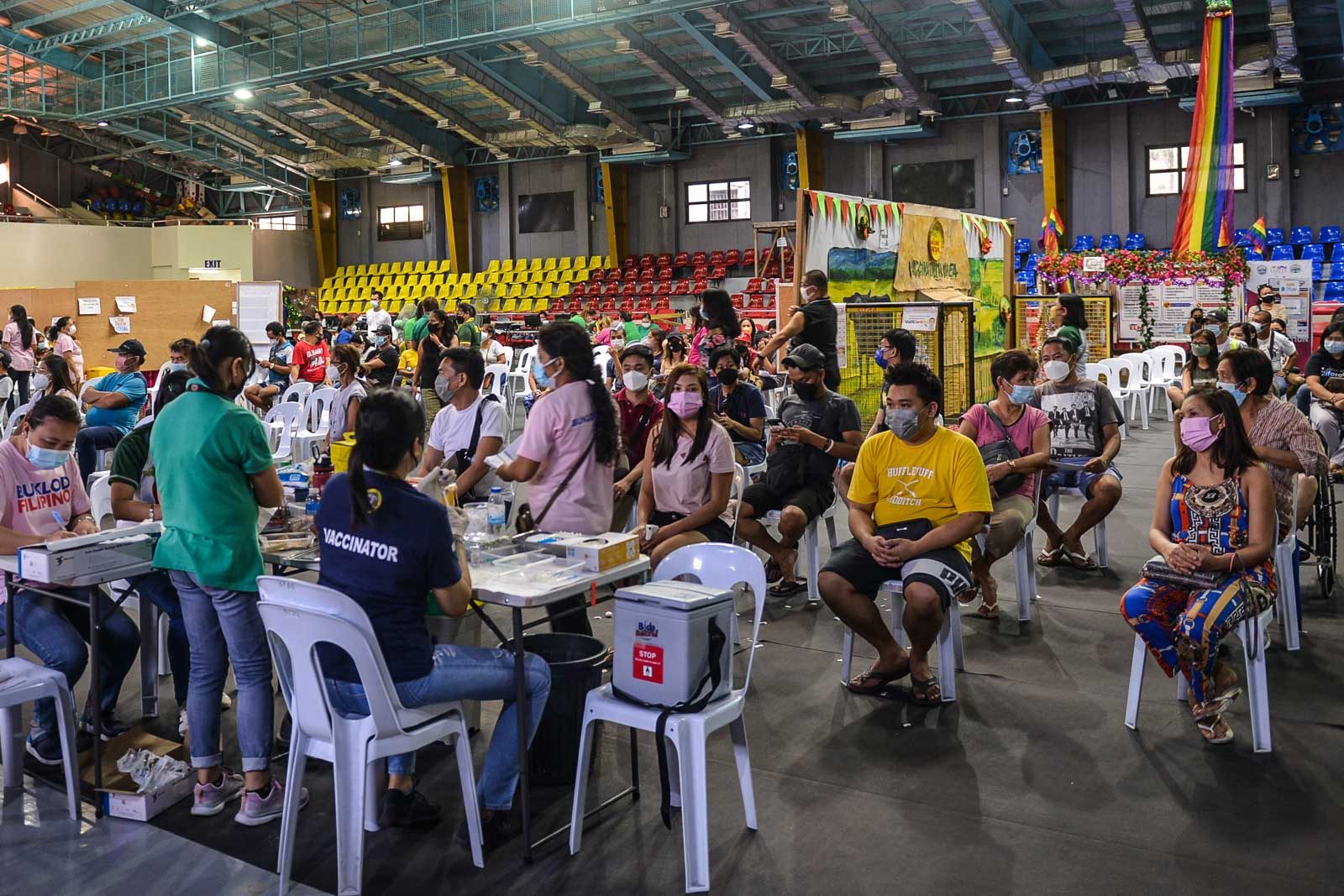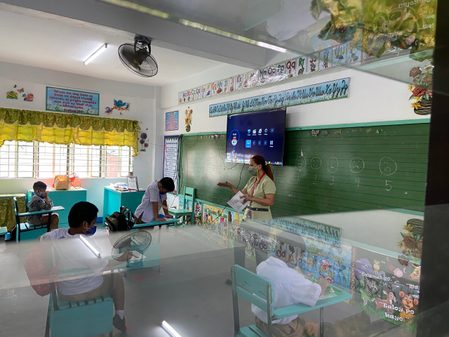SUMMARY
This is AI generated summarization, which may have errors. For context, always refer to the full article.

MANILA, Philippines – Almost a year since the Philippines rolled out its vaccination drive against COVID-19, the government is set to begin administering the jabs to kids aged 5 to 11 beginning Friday, February 4.
The vaccination of kids is a welcome news as the Department of Education (DepEd) plans to eventually transition to limited face-to-face classes by school year 2022 to 2023. The country has been using the distance learning system since the pandemic began in 2020. (READ: 5 ways the Philippines can prepare its schools for health crises in 2022)
Education Undersecretary Nepomuceno Malaluan said that some 14 million basic education students aged 5 to 11 are eligible for the vaccination. He added that the Department of Health (DOH) and vaccine czar Carlito Galvez Jr. committed to the DepEd that students would be prioritized in the inoculation drive.
The education official said that the planned vaccination would help build confidence among parents to allow their children to attend in-person classes. President Rodrigo Duterte recently allowed more schools to hold limited face-to-face classes.
Since November 15, 2021, a total of 287 public and private schools have been holding limited face-to-face classes in a pilot run approved by the President, but the government suspended in-person classes in Metro Manila and other Alert Level 3 areas starting January 2, 2022, due to rising COVID-19 cases.
Health Undersecretary Maria Rosario Vergeire said that, although COVID-19 causes less severe disease to children, they are still not spared from contracting the deadly virus.
“According to the Philippine Pediatric Society and the Pediatric Infectious Disease Society of the Philippines, though COVID-19 is causing less severe disease to the pediatric age group, they can still be infected with the virus, which can result in hospitalization or admission to the intensive care unit. That’s why they need to get protected against the virus,” Vergeire said in a mix of English and Filipino.
The COVID-19 vaccination for kids comes as the Philippines is recovering from the surge in infections driven by the highly contagious Omircon variant. Though infections in Metro Manila have been declining, cases are on the rise in other areas, especially in the Visayas and Mindanao. (READ: Metro Manila back to ‘moderate risk’ for COVID-19 – DOH)
Here’s how the vaccinations among children will be done in the country, based on pronouncements of pandemic task force officials. Rappler will update this story once we get more information.
Who are eligible for vaccination?
On Saturday, January 29, Health Undersecretary Myrna Cabotaje said that, unlike the inoculation campaign for 12- to-17-year-olds, prioritization of kids with comorbidities will no longer be observed among the aged 5 to 11 age group, in a bid for faster vaccination. However, parents of kids with comorbidities will still be required to present a medical certificate.
“Unlike for the 12- to 17-year-olds, where the ones with comorbidities were prioritized, we want to expedite vaccination, so we will allow [children] with and without comorbidities to get vaccinated at the same time,” Cabotaje said in Filipino.
What’s the process?
The vaccination process for kids is similar with the adult group, except that children need to present a signed consent form from their parent or guardian. They must also be accompanied by their parents or guardian on their vaccination day.
A number of local government units (LGUs) have started their pre-registration for the pediatric group. Parents may coordinate with their LGUs to enlist their children.
Vergeire said that the vaccination will adopt a phased implementation approach, starting with kids from virus epicenter Metro Manila.
On February 4, the DOH said that there are at least 32 sites for the vaccination campaign, including the Philippine Children’s Medical Center and the Philippine Heart Center, both in Quezon City.
As of January 29, the DOH said a total of 168,355 children aged 5 to 11 had registered for the vaccination, which would be expanded as more supplies of the vaccines arrive in the country.
What are the requirements?
The DOH laid out the following requirements for the vaccination.
- Child is accompanied by parent or guardian
- Proofs of relationship (e.g. birth certificate)
- Valid ID of child, with picture
- Valid ID of parent or guardian, with picture
- Medical certificate, if with comorbidities
- Well-fitted face mask and face shield
- Writing materials
- Alcohol, fan, water, as necessary
If the child does not have a valid ID, Cabotaje said the barangay captains can be witnesses in proving filiation.
What vaccine brand will be administered?
COVID-19 vaccine made by Pfizer-BioNTech will be used for the pediatric vaccination as this was the only vaccine that received emergency use approval for 5 to 11 years old from the Philippines’ Food and Drug Adminstration.
“While it’s the Pfizer vaccine that will be administered to both the 12- to-17-year-olds and the 5-to-11-year-olds, there will be different formulas for the two age groups. To ensure that they will receive the right vaccine dose, the lid of the bottles would have different colors – one for the 12-17, and another for the 5-11,” Vergeire said in Filipino.
The Pfizer vaccines to be administered to children aged 5 to 11 will have a lower dosage and lower concentration than those given to youths aged 12 to 17.
Are side effects expected?
Just like adults, the kids are also expected to experience side effects from the COVID-19 vaccine. Vergeire, however, noted that these would be mild reactions and should not last longer than 48 hours.
These are some of the usual side effects:
- Muscle aches
- Low-grade fever
- Fatigue
- Pain and swelling at the injection site
- Headache
“Just like the vaccine for adults and adolescents, the COVID-19 vaccine is effective, safe, and free for all the children,” Vergeire said.
The country just began vaccinating 12-to-17-year-olds in October 2021. Booster shot administration was only opened to all adults in the first week of December 2021. – Rappler.com
Add a comment
How does this make you feel?

There are no comments yet. Add your comment to start the conversation.